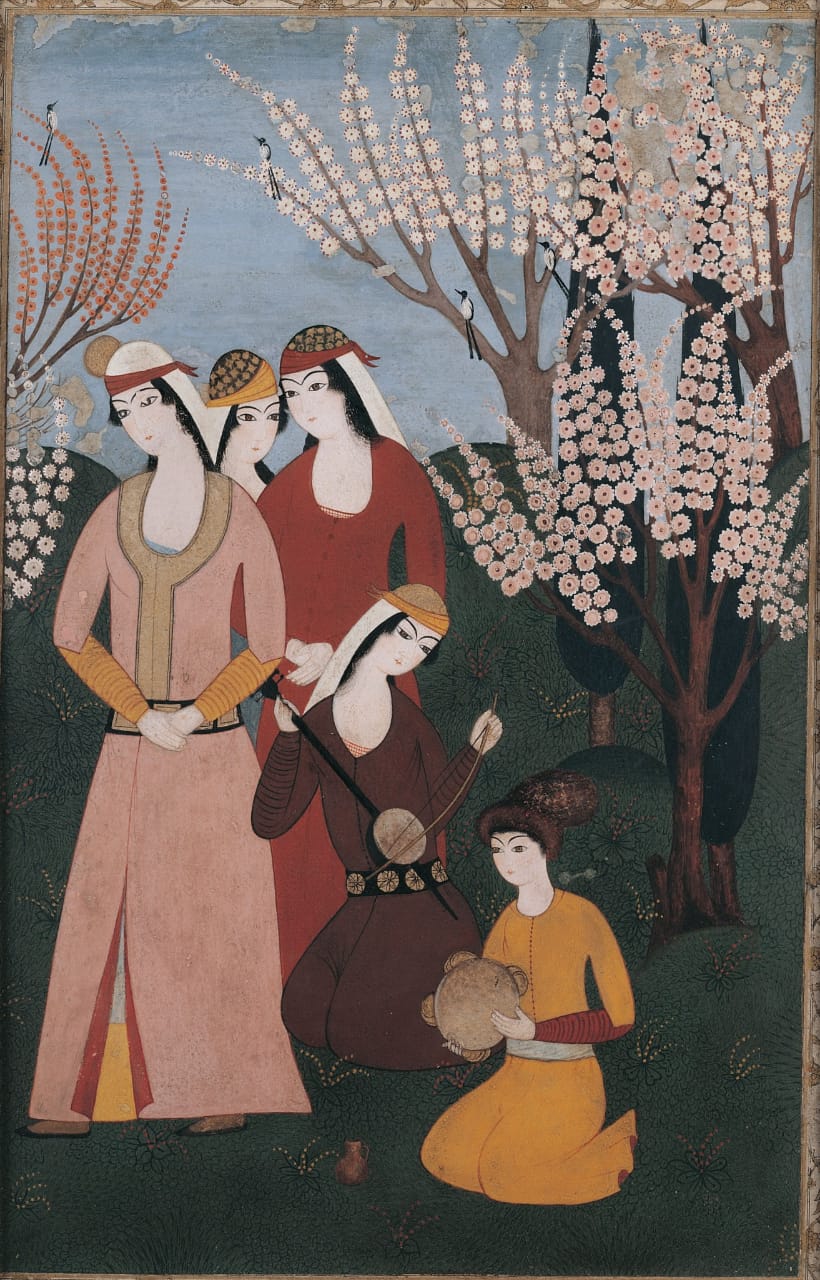World Music Day: The Spiritual Harmony of Sufism
–Samim Ahmed
World Music Day, celebrated on June 21, transcends mere entertainment to embrace the profound spiritual healing that music can provide. Both Indian and Sufi saints have long extolled music’s sacred power, recognizing its ability to connect the human spirit to the divine. The essence of Sufism, with its pursuit of divine union, embodies this belief. While some Sufis seek to merge with God, others view this as an act of arrogance, preferring instead a humble closeness to the divine. Central to Sufi practice is the dhikr (or zikr), a form of prayer that often incorporates music and movement.
The Musical and Spiritual Practices of Sufism
Sufi practices vary widely, from silent meditation to ecstatic singing and dancing. The Chishti order, for example, is renowned for its use of Sama, a form of devotional music and poetry aimed at dissolving oneself in God, often through the immersive experience of Qawwali. Sama involves listening to spiritual music and poetry, which can induce a state of trance and spiritual ecstasy.
The Isawiyya order, founded by Sheikh al-Kamil Muhammad al-Hadi ben Isa in 15th-century Morocco, seeks to connect with the Supreme Being through music. Followers of this order engage in group singing accompanied by traditional instruments like the oboe-like ghaita and polyrhythmic percussion. Their rituals, which include chanting the prayer ‘Glory to the Eternal’ (al-Hizb subhan al-Da’im), blend spiritual recitations with communal dances, creating a vibrant, multi-sensory worship experience. This combination of music and movement serves to elevate the soul and deepen the connection to the divine.
The Jilala and Ganawa Traditions
The Jilala Tariqa, another Moroccan Sufi order, uses music to invite saints and jinns, praising Allah with intense songs that convey both friendship and melancholy. The rhythms of Jilala music echo early hip-hop and share influences with Ganawa music, a tradition combining ritual poetry with music and dance. Ganawa music, deeply rooted in West African traditions and now practiced widely in Morocco, serves as a powerful tool for prayer and healing during ceremonial nights called Lila. These ceremonies are dedicated to spiritual healing and often involve extended periods of music and dance, led by Ganawa musicians who guide the participants through a transformative spiritual journey.
Hazrat Inayat Khan: Bridging East and West
Hazrat Inayat Khan (1882-1927), a pivotal figure in bringing Sufism to the West, was a multifaceted genius—a musician, poet, philosopher, and promoter of Sufism. Born in Baroda to a noble Mughal family, Khan’s lineage included renowned musicians and educators. His maternal grandfather, Maula Bakhsh Sholay Khan, was a celebrated Hindustani classical musician, known for his mastery and innovation in Indian classical music.
Inayat Khan founded the Inayati Order in 1914 in London, spreading his teachings across Europe and North America. His teachings focused on the Unity of God (Tawheed), drawing parallels between all major religions and emphasizing the pursuit of divine realization through traditional Sufi disciplines. He believed that all religions shared a common essence and sought to reveal this unity through his teachings and music.
The Legacy of Inayat Khan
Inayat Khan’s philosophy is encapsulated in his famous quote: “God is in you and you are in God. Just as bubbles in the ocean are part of the ocean, so is the relationship between man and God.” His teachings advocate for the discovery of the latent light and power within oneself and the promotion of unity, love, and wisdom to eradicate prejudices and hatred. Khan’s teachings emphasize the importance of love and compassion in bridging the divides between different faiths and cultures.
Khan’s legacy includes numerous writings and lectures on religion, art, music, ethics, philosophy, psychology, health, and Sufi healing. His residence and khanqah in Suresnes, France, known as ‘Fazal Manzil’, became a center for his teachings. His grandson, Zia Inayat Khan, continues to lead the Inayati Order today, maintaining the mission of spiritual unity and enlightenment. The Inayati Order remains committed to promoting peace and understanding through the universal principles of Sufism.
Music as a Path to the Divine
Inayat Khan viewed music as a reflection of the divine, stating that music is “the picture of our beloved.” He believed that perceiving our actions as music could lead to spiritual accomplishment. His teachings have not only influenced those interested in Sufism but have also resonated deeply with musicians worldwide, illustrating the universal power of music as a path to spiritual fulfillment.
Sufi music, deeply rooted in the mystical branch of Islam known as Sufism, is renowned for its potential in healing and spiritual upliftment. This genre transcends mere entertainment, acting as a conduit for divine connection and inner peace. Sufi music encompasses various forms such as qawwali, ghazals, and the whirling dervishes’ chants, each aiming to induce a state of spiritual ecstasy (wajd) that bridges the earthly and the divine.
Central to Sufi musical healing is the concept of dhikr, the repetitive chanting of God’s names or sacred phrases. This practice aligns the mind and spirit, fostering a meditative state that can alleviate stress, anxiety, and emotional turmoil. The rhythmic patterns and melodic structures in Sufi music are designed to resonate with the listener’s soul, facilitating a transcendental experience that promotes mental and emotional well-being.
Moreover, the therapeutic effects of Sufi music are not limited to spiritual healing. Studies have shown that music therapy, including Sufi music, can positively impact physical health by reducing blood pressure, improving heart rate, and enhancing overall physiological functions. This is attributed to the calming and harmonizing properties of the music, which can activate the parasympathetic nervous system, fostering relaxation and healing.
Conclusion
World Music Day serves as a reminder of the profound spiritual and healing powers of music. Sufi music, with its rich traditions and practices, exemplifies the ability of music to connect us to the divine and promote inner peace. Whether through the ecstatic rhythms of Qawwali, the meditative chants of dhikr, or the transformative power of Ganawa music, Sufi traditions offer a unique path to spiritual fulfillment and healing. As we celebrate this day, let us embrace the spiritual harmony that music brings into our lives, transcending boundaries and uniting us in a shared quest for divine connection and inner peace.




